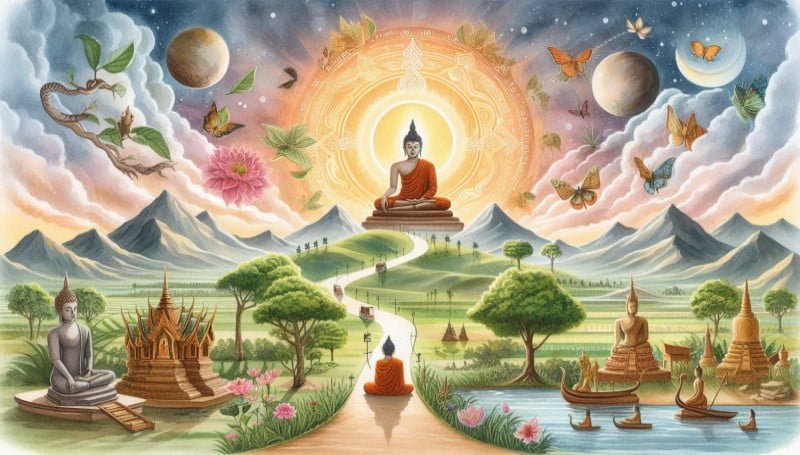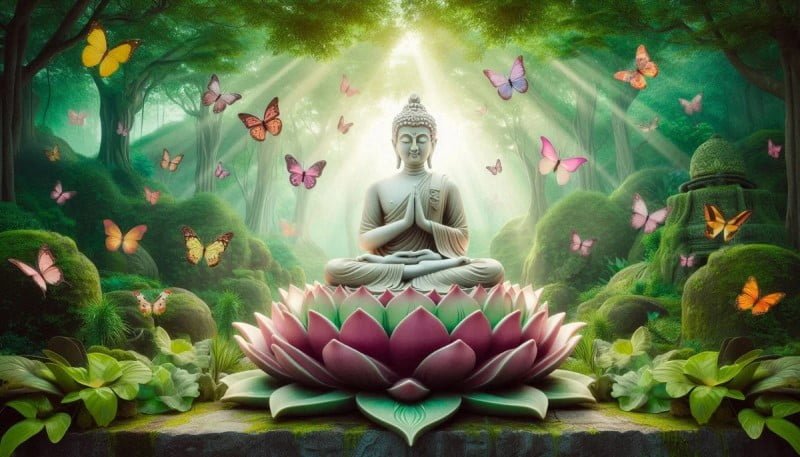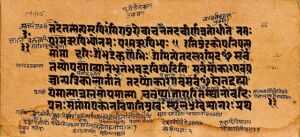
In the ceaseless rush of our digital age, where notifications ping incessantly and deadlines loom large, the ancient teachings of Siddhartha Gautama—known to the world as Buddha—offer a beacon of tranquility and purpose. Born in the 6th century BCE in what is now Nepal, Buddha’s insights into the nature of existence and the path to inner peace continue to resonate across millennia, providing a compass for those navigating the complexities of 21st-century life.
The Core of Buddha’s Philosophy
At the heart of Buddhist philosophy lies the Four Noble Truths and the Eightfold Path. These teachings acknowledge the universal presence of suffering (Dukkha) and offer a pragmatic approach to its alleviation.
The Four Noble Truths can be understood as a diagnosis and prescription for the human condition:
- The truth of suffering
- The cause of suffering
- The cessation of suffering
- The path leading to the cessation of suffering
This final truth unfolds into the Eightfold Path, a set of interconnected practices that guide adherents towards liberation:
- Right Understanding
- Right Intent
- Right Speech
- Right Action
- Right Livelihood
- Right Effort
- Right Mindfulness
- Right Concentration
These principles, far from being abstract philosophical concepts, offer practical guidance for everyday life. They encourage us to cultivate awareness, act with compassion, and live ethically—imperatives that are perhaps more crucial now than ever before.

Mindfulness: The Antidote to Modern Chaos
In our hyperconnected world, the Buddhist practice of mindfulness stands out as a powerful tool for maintaining mental equilibrium. Mindfulness involves paying deliberate attention to the present moment, acknowledging thoughts and sensations without judgment. This simple yet profound practice has garnered significant attention in recent years, with scientific research corroborating its myriad benefits for mental health and cognitive function.
Incorporating mindfulness into daily life need not be a daunting task. It can begin with something as simple as focusing on one’s breath for a few minutes each day. As one becomes more adept, this awareness can be extended to everyday activities—eating, walking, or even scrolling through social media. By doing so, we create pockets of calm in the storm of modern life, fostering greater clarity and resilience.
Read about Information Overload
Compassion in a Connected World
Buddha’s teachings on compassion (karuna) take on new dimensions in our globally interconnected society. In a world where a tweet can spark international incidents and where our consumer choices can impact lives halfway across the globe, cultivating genuine concern for the well-being of all beings is not just a spiritual ideal but a practical necessity.
Practicing compassion in the modern context might involve:
- Engaging in active listening during conversations, both online and offline
- Supporting ethical businesses and sustainable practices
- Volunteering for community service or supporting charitable causes
- Advocating for social justice and equality
By extending compassion beyond our immediate circle, we contribute to a more harmonious and equitable world—a goal that aligns seamlessly with Buddha’s vision of universal well-being.
Ethical Living in the Digital Age
The Buddhist precepts of ethical living (sila) provide a moral framework that is remarkably adaptable to contemporary challenges. In an era where online interactions can often devolve into hostility, and where the pursuit of profit sometimes overrides ethical considerations, Buddha’s guidance on right speech and right action offers a path to more constructive engagement.
Applying these principles in the digital realm might mean:
- Refraining from spreading misinformation or engaging in online harassment
- Using social media mindfully, as a tool for connection rather than comparison
- Supporting digital initiatives that promote education and positive social change
- Practicing digital minimalism to reduce information overload and cultivate presence
By consciously aligning our online and offline behavior with ethical principles, we can help foster a more respectful and trustworthy digital ecosystem.
Finding Balance in a World of Extremes
Perhaps one of the most valuable lessons from Buddha’s teachings for modern life is the concept of the Middle Way. This principle advocates for balance and moderation, steering clear of extremes. In a world that often seems polarized—politically, socially, and economically—the Middle Way offers a refreshing alternative.
Applying this wisdom to contemporary challenges might involve:
- Seeking nuanced understanding of complex issues rather than adhering to rigid ideologies
- Balancing career ambitions with personal well-being and relationships
- Adopting sustainable lifestyle choices that consider both individual needs and environmental impact
- Cultivating a healthy relationship with technology, neither rejecting it outright nor becoming overly dependent
By embracing the Middle Way, we can navigate the complexities of modern life with greater equanimity and wisdom.
Conclusion: Ancient Wisdom for Modern Thriving
As we stand at the crossroads of technological advancement and age-old human challenges, the teachings of Buddha offer a timeless guide for living with intention and purpose. By integrating practices of mindfulness, compassion, and ethical living into our daily routines, we can cultivate greater mental well-being, foster healthier relationships, and contribute to a more just and peaceful world.
The journey towards a more mindful and compassionate existence begins with small steps—a few minutes of meditation, a conscious act of kindness, a moment of digital detox. As we gradually incorporate these practices into our lives, we not only enhance our own well-being but also contribute to the creation of a more mindful, compassionate, and harmonious society.
In embracing Buddha’s timeless wisdom, we find not just a philosophy, but a practical path to thriving amidst the complexities of contemporary existence. It is a path that leads us back to our innate capacity for awareness, compassion, and peace—qualities that are more essential than ever in our rapidly changing world.



